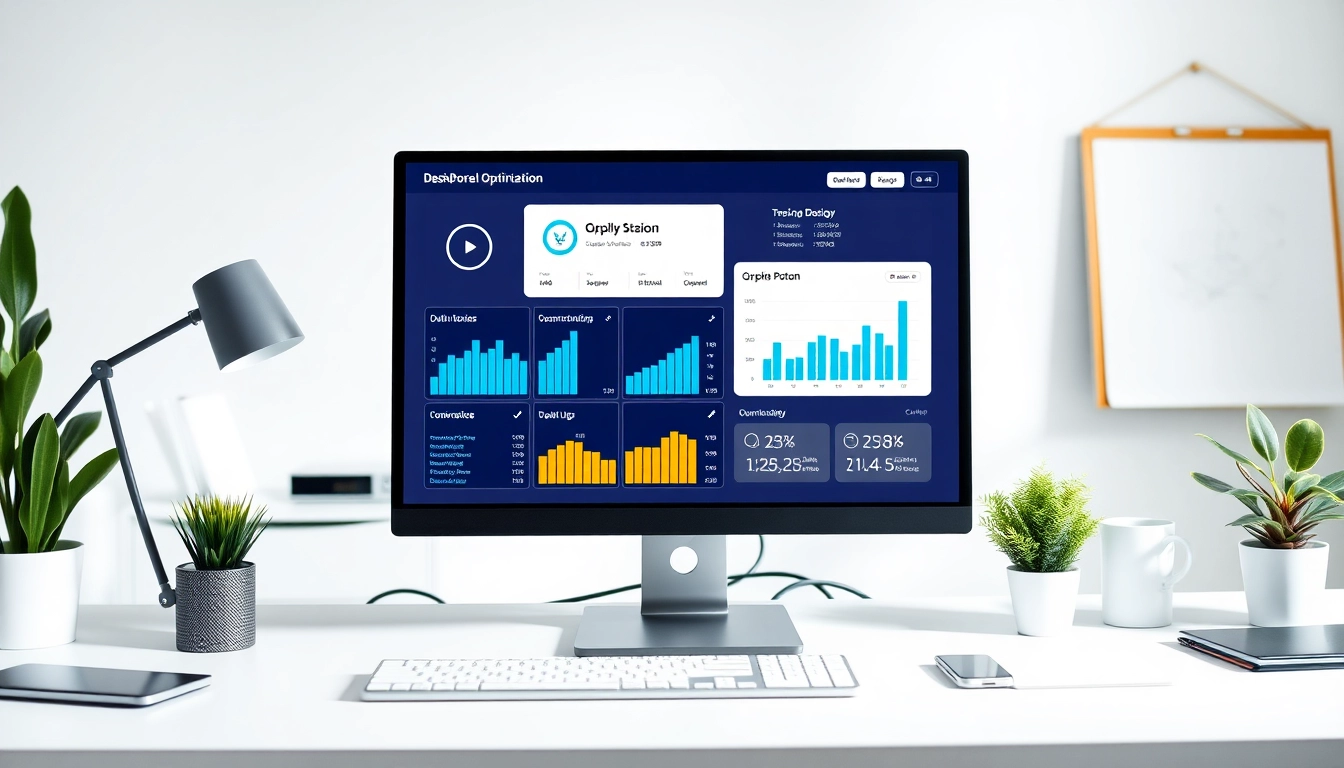Mastering Job Portal Optimization in 2025: Boost Visibility and Attract Top Talent
In today’s highly competitive job market, securing the dream position demands more than just a polished resume; it requires a strategic approach to how you present yourself across various online platforms. This is where job portal optimization becomes critical. Optimizing your online presence on job portals such as Naukri, LinkedIn, Monster, and others substantially increases your visibility to recruiters and hiring managers, ultimately amplifying your chances of landing interviews. As the job search landscape evolves in 2025, understanding and implementing effective job portal optimization techniques is essential for any serious job seeker aiming to stand out amidst thousands of competitors. Job portal optimization refers to tailoring your online job profiles, resumes, and activity to maximize visibility and attractiveness to recruiters utilizing search algorithms and applicant tracking systems (ATS). The process involves refining your profiles, keywords, and content to improve ranking in search results, thereby making your profile more accessible to potential employers. In 2025, with advancements in AI-driven recruitment tools, optimizing your profile is no longer optional but mandatory. Proper optimization ensures that your profile aligns with current industry standards, keywords relevant to your target roles, and platform-specific best practices, substantially increasing your hiring prospects. Avoid outdated or generic profiles that lack specificity; neglecting keyword optimization can bury your profile in search results; inconsistent information across platforms creates confusion; and ignoring platform-specific features diminishes your profile’s effectiveness. To stay ahead, continuously monitor and update your profiles, tailor your content for each portal, and use the latest platform functionalities. Applying SEO techniques to your job posts involves incorporating relevant keywords into job titles, descriptions, and tags so that your listings are easily discoverable. Use tools like Google Keyword Planner to identify trending terms in your industry and ensure they are naturally embedded in your job descriptions. Additionally, crafting compelling and descriptive titles that include primary keywords significantly boosts searchability. Identify role-specific keywords that prospective candidates are likely to search for. For example, if hiring for a digital marketing expert, keywords like “SEO”, “content strategy”, “PPC”, and “social media management” should be prioritized. Place keywords strategically in the headline, skill sections, and detailed responsibilities without keyword stuffing, which can harm readability and ranking. Your job titles should be precise and reflect common terminology used in the industry. Job descriptions must be detailed yet concise, emphasizing core responsibilities and required skills. Use tags to categorize your listings accurately—these act as metadata that enhance search relevancy across job boards and search engines. Remember, a well-optimized post reaches the right candidates faster. Data-driven strategy is fundamental in 2025. Use analytics tools provided by job portals and third-party platforms to monitor key metrics such as impressions, click-through rates, application conversions, and candidate quality scores. Regularly reviewing these KPIs enables you to refine your strategies effectively, ensuring ongoing improvement in visibility and candidate engagement. AI-powered recruitment tools can scan thousands of profiles and match candidates based on keywords, experience, and behavioural indicators. Implementing such tools enhances your screening process, allowing for quicker, more precise candidate identification. For employers, leveraging AI-driven recommendations ensures that your profile appears in relevant searches, increasing the likelihood of spontaneous recruiter outreach. Effective job portal optimization is continuous. As data reveals what works best—be it certain keywords, resume formats, or activity levels—you should adapt by incorporating these insights. In 2025, flexibility and analytics are central to maintaining a competitive edge. For recruiters and companies, a professional, clear, and engaging profile attracts quality candidates. Use high-resolution images, consistent branding, and detailed descriptions of your company’s values, culture, and benefits. Well-crafted job descriptions should emphasize growth opportunities, responsibilities, and desired skills with SEO-friendly language. Share employee success stories, update content regularly, and respond promptly to candidate inquiries. Engaging content fosters trust and encourages candidates to interact actively with your profile, which can further boost your visibility through platform algorithms that favor active and engaging profiles. Cross-promote your job postings and employer brand across platforms like LinkedIn, Twitter, Facebook, and industry-specific forums. Consistent, targeted messaging aligns your public persona and increases reach, ensuring job seekers encounter your brand wherever they look. Semantic search allows platforms to interpret user intent beyond simple keywords, favoring contextual understanding. Incorporate natural language in your profiles and postings, focusing on skills and experiences that answer real job seeker queries. AI recruitment trends include chatbots, predictive analytics, and personalized candidate suggestions, which require your profiles to be optimized for machine understanding. With over 70% of job searches conducted via mobile devices, ensuring your profiles and applications are mobile-friendly is crucial. Use responsive design, concise content, and intuitive navigation to enhance candidate experience and prevent drop-offs. Embrace emerging trends like voice search optimization, video application integration, and AI-mediated personalized job recommendations. Regularly update keywords with evolving industry jargon and maintain active engagement to sustain competitive advantage in the shifting digital landscape.Unlocking the Power of Job Portal Optimization in 2025
Understanding the Fundamentals of Job Portal Optimization
What Is Job Portal Optimization and Why Does It Matter?
Key Components for Effective Optimization Techniques
Common Pitfalls and How to Avoid Them
Strategies to Enhance Your Job Posts for Better Visibility
Using SEO Best Practices on Job Listings
Implementing Keywords Effectively to Attract Right Candidates
Optimizing Titles, Descriptions, and Tags for Search Engines
Leveraging Technology and Analytics for Improved Results
Tracking Metrics and Measuring Success
Utilizing AI Tools for Candidate Matching
Adjusting Strategies Based on Data Insights
Content and Branding Optimization on Job Portals
Creating Compelling Company Profiles and Job Descriptions
Enhancing Employer Branding and Candidate Engagement
Integrating Social Media for Cross-Channel Visibility
Advanced Techniques for Competitive Job Portal Optimization
Adopting Semantic Search and AI Recruitment Trends
Ensuring Mobile Optimization and User Experience
Future-Proofing Your Strategies in 2025
